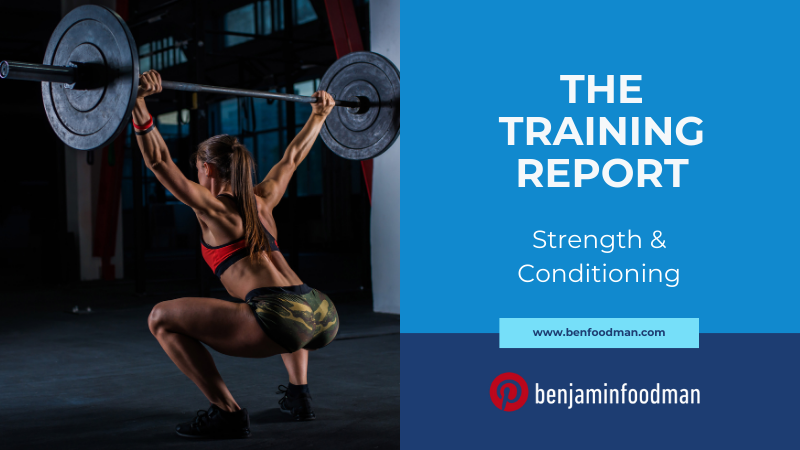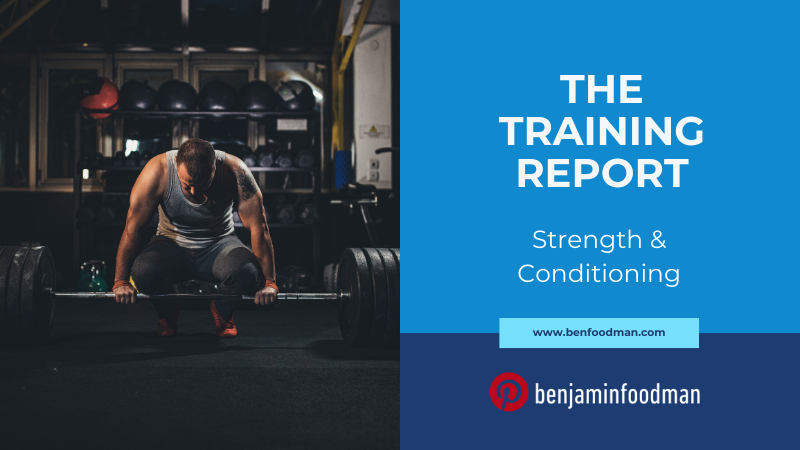Strength & Conditioning - Core Development Guide For Athletes
About the Author
Ben Foodman is a licensed psychotherapist & performance specialist. He owns his private practice located in Charlotte North Carolina where he specializes in working with athletes to help them overcome mental blocks (the yips), PTSD, ADD / ADHD and achieve flow states through the techniques of Brainspotting & Neurofeedback. If you are interested in services, use the link here! Enjoy the article below!
Introduction: Athletes, Exercise Science & Core Strength
In the field of strength & conditioning, there are certain forms of training that the general public expresses great interest in. The vast majority of people are interested in cultivating a certain type of physique or ‘getting toned’. There are others who are interested in developing peak athletic power or maximum strength. But regardless of what one’s interests are, good health needs to go hand in hand with these objectives.
One area of strength & conditioning that all athlete populations need to focus on is core development. This article is not about how to create washboard abs, but rather is about developing the muscular structure in order to maximize on one’s health. We will first begin by defining what core training is followed by the scientific justification for core training. We will then conclude with different types of core exercises athletes can focus on. Let’s first begin by defining this issue.
Part I. How Strength & Conditioning Specialists Define Core Training
Like any profession, if you ask enough strength & conditioning specialists, you will get varying definitions of the core. According to Developing The Core by the National Strength & Conditioning Association, ‘the term core is often used by fitness professionals in conjunction with the term functional. The term functional is used with reference to exercises that are considered more specific to performance of a task or that possess greater transferability to performance of sport skills. Although the functionality of an exercise is often based on subjective judgement, exercises are considered to be more functional or to possess greater transferability when the core muscles are involved in conjunction with actions of the upper or lower extremities’.
‘The precise definition of the anatomical core has been inconsistent in scientific publications, with different definitions based on various authors perspectives and field of study. Furthermore the term core exercise takes on different definitions in fitness development settings, distinguishing for example between exercises that form the foundation of a typical resistance exercise program such as the power clean, back squat, and standing overhead press; and exercises specifically intended to target the core muscles with the intent of enhancing spinal stability, the transfer of torque and angular velocity from the lower to upper extremities. In popular media the term core is most often associated with only a limited group of muscles, specifically the abdominals; however, other passive tissues such as bones, cartilage and ligaments are also relevant’.
Part II. Athletes, Functional Fitness And Prehab Strength & Conditioning
There are certain words in the field of exercise science that cause me to have a strong eye roll reflex. Toning muscles, prehab and functional fitness are examples of ‘eye roll’ terms. Nonetheless these are largely recognizable terms by the general public and I want to integrate these ideas into WHY athletes should always emphasize core training. In the world of exercise science, there are basically what I refer to as 3 styles of strength training: bro science (e.g. one rep max attempts, muscle hypertrophy), sport training (e.g. focusing on exercises that enhance sport specific movements) and prehab (e.g. combining physical therapy-based approaches as a form of injury-prevention strength training).
I am a big fan of what people commonly refer to as prehab. Based on what I have seen from different training styles that athletes incorporate into their programming, when athletes focus on improving their health through this training style, their injury rates appear to be significantly less than their peers and their performance outcomes steadily improve. Furthermore research in exercise science consistently shows us that when athletes focus on strength & conditioning protocols for the core, regardless of the sport athletes will benefit immensely in both health and performance. While all strength & conditioning is largely considered to be a form of ‘injury-prevention’ some styles are more efficient than others. I believe taking a prehab approach that focuses on the core will be most ideal for all athletes.
Part III. Sample Core Strength Program Design For All Athletes
Sample Exercises
Medicine Ball Rotational Throw
Kettlebell Turkish Getup
Resistance Band Walkout
Cable Kneeling Rope Crunch
Stability Ball Supine Bridge
Russian Twist
Side Bridge
Angled Barbell Rotation
Sample Program
Microcycle 1 - Week 1
Workout Day 1
Stability ball side crunch - 2 x 15 each side
Reverse Crunch - 2 x 15
Stability Ball Crunch - 2 x 15
Workout Day 2
Side Bridge, Right Side - 2 x 30 seconds
Side Bridge, Left Side - 2 x 30 seconds
Note To Reader:
If you are an athlete reading this segment of the TRAINING REPORT, hopefully this content was helpful! I put the Training Report together because I felt like many of the discussions on issues such as the Yips/mental blocks, strength training & other subject matter on athlete performance concepts were really missing the mark on these ideas (e.g. how trauma is the direct cause of the Yips). If you are interested in learning more, make sure to subscribe below for when I put out new content on issues related to sport psychology & athlete performance! Also, if you are looking to work with a mental performance specialist, you are in the right place! USE THIS LINK to reach out to me to see if my services are the right fit for your goals!
ARE YOU ON THE LIST?
Make sure you’re signed up to Ben’s mailing list to receive news & updates on new strategies in sport psychology, upcoming workshops & products. Don’t wait, sign up now!


























